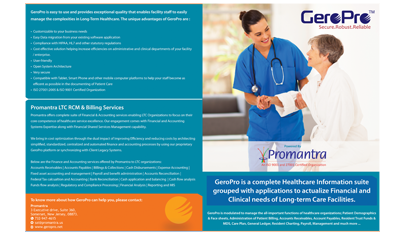Reducing Denials for Skilled Nursing Facilities

In today’s complex healthcare landscape, Skilled Nursing Facilities (SNFs) face relentless financial pressures. With margins that are often razor-thin, every denied claim, delayed reimbursement, and unnecessary write-off can profoundly impact operational sustainability. Strengthening the revenue cycle is not merely a financial strategy; it is essential for maintaining quality care, investing in staff, and ensuring the long-term viability of a facility. As a seasoned SNF Solutions Architect, I have witnessed how a well-optimized revenue cycle does not happen overnight. It requires a proactive and disciplined approach that combines effective processes, reliable systems, and a deep understanding of the long-term care reimbursement landscape.
The Cost of Inefficient Revenue Cycles
Inefficiencies in the revenue cycle can manifest in various ways, affecting both the financial health of the facility and the quality of care provided to residents:
- High denial rates can lead to significant revenue leakage.
- Delayed payments create cash flow bottlenecks that hinder operations.
- Increased write-offs often result from missed follow-ups and administrative errors.
- Staff burnout can occur due to reactive and manual processes.
- Reduced capacity to reinvest in facility improvements and resident services can stifle growth.
The complexity of billing requirements increases the risk of errors for SNFs operating under a mix of Medicare, Medicaid, managed care, and private pay sources. The solution lies in designing a revenue cycle that is reactive but also preventive and sustainable.
A Revenue Cycle Blueprint for Skilled Nursing Facilities
A robust revenue cycle management (RCM) program focuses on several key pillars:
- Front-End Accuracy: The foundation of a clean claim begins at admission. Collecting complete and accurate resident information, verifying insurance eligibility upfront, and ensuring that authorization requirements are met can significantly reduce downstream errors.
- Timely and Accurate Billing: Claims must be submitted promptly, correctly coded, and according to payer-specific rules. By leveraging efficient billing workflows, facilities can minimize corrections, rework, and late submissions, which often lead to delays or denials.
- Proactive Denial Management: Denials should not be viewed as isolated incidents but as indicators of systemic issues. Facilities must track and categorize denials, perform root cause analyses, and implement corrective actions to prevent recurrence.
- Robust Accounts Receivable (AR) Follow-up: Consistent, timely, and strategic AR follow-up is essential. Aged accounts should be prioritized, and escalation protocols must be established to pursue unresolved balances systematically.
- Clear Financial Reporting: Facilities need real-time visibility into key financial indicators such as Days Sales Outstanding (DSO), denial rates, collection rates, and aging buckets. This transparency enables informed decision-making at both operational and leadership levels.
- Staff Training and Accountability: Even the best systems can falter without knowledgeable staff. Ongoing training in billing guidelines, documentation standards, and payer requirements ensures that teams remain aligned with the best practices.
How Strategic Partnerships Strengthen Revenue Cycles
Building and maintaining a high-performing revenue cycle in-house can be challenging, especially in the face of staffing shortages and regulatory changes. Many forward-thinking SNFs are now partnering with specialized outsourcing providers who bring targeted RCM, AR management, billing, and case management expertise. Organizations like LTCPro offer a comprehensive suite of solutions designed specifically for long-term care providers. Their approach integrates seamlessly into facility operations, minimizing denials, accelerating cash flows, and enhancing overall financial health. By managing back-office complexities, these partners allow facilities to focus on clinical excellence and resident satisfaction.
Moving Toward a Healthier Financial Future
In long-term care, financial health directly impacts clinical outcomes. The ability to invest in staff training, facility upgrades, and resident programs often hinges on the strength of the revenue cycle. By reducing denials, avoiding unnecessary delays, and minimizing write-offs, SNFs can ensure sustainability and growth. A thoughtfully designed revenue cycle blueprint, supported by the right expertise and systems, is no longer optional; it is essential. Facilities that take proactive steps today will be better positioned to navigate tomorrow’s challenges and seize new opportunities.
A perfect fit for Skilled Nursing Facilities, Assisted Living Facilities, Home Health, Hospice and Other Day Care Centres.
Download BrochureRequest a demo


























